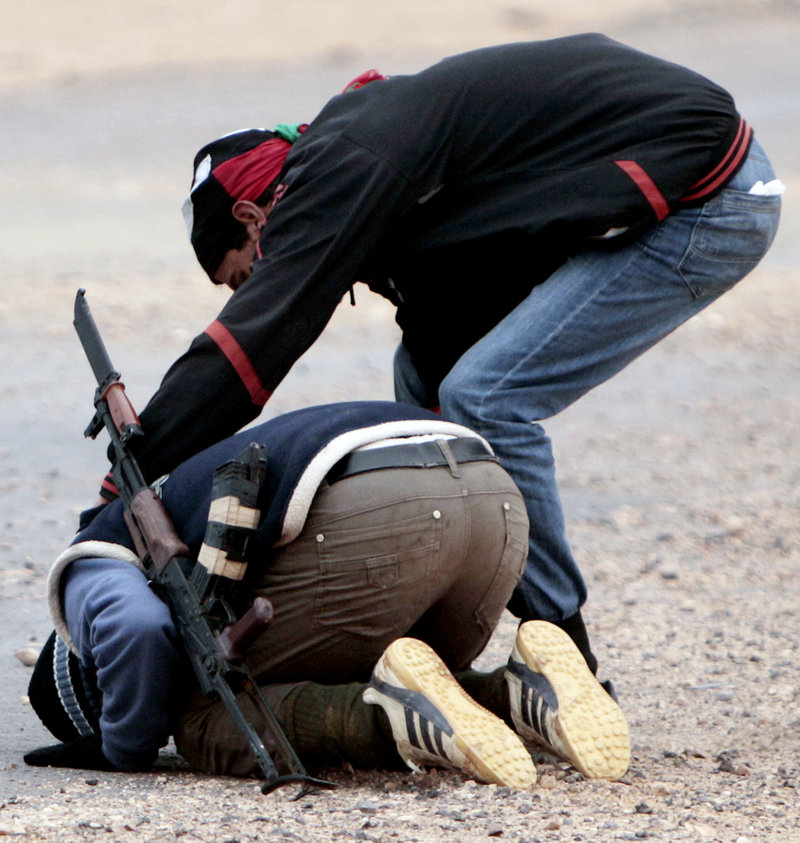WASHINGTON — The United States and its European allies are considering the use of naval assets to deliver humanitarian aid to Libya and to block arms shipments to the government of Moammar
Gadhafi, even as they weigh the legality of imposing a no-fly zone without United Nations authorization, according to U.S. and European officials.
NATO officials began briefing governments Tuesday night on a range of options that will be presented to defense ministers in Brussels on Thursday.
The Obama administration, NATO and other international organizations are united in their belief that any intervention in Libya would require international backing. But with a U.N. mandate far from assured, those considering some form of intervention – including the United States, Britain, France and Italy – are looking for alternative support, officials said.
“If you have (support from) the Arab League, the African Union, NATO and potentially the European Union, you have every country within 5,000 miles of Libya,” a NATO official said. “That gives you a certain level of legitimacy.”
The intense international deliberations came as troops loyal to Gadhafi continued to besiege the rebel-held city of Zawiyah, 27 miles west of Tripoli, for a fifth day on Tuesday, with rebel officials there citing a mounting toll of dozens dead and hundreds wounded, including women and children.
In Ras Lanuf, about 400 miles east of the capital, Gadhafi loyalists were engaged in fierce fighting with rebels who had hoped to march on Sitre, Gadhafi’s hometown and a strategically vital city still under tight government control.
Gadhafi made a surprise appearance at a hotel hosting foreign correspondents in Tripoli, arriving just before midnight, The Associated Press reported. He raised his fist in the air as he walked from his car to the hotel, then went into a room for about an hour before leaving without speaking to reporters waiting outside.
As they weighed the prospect of intervention, the Obama administration and European governments continued efforts to size up the Libyan opposition. “We feel that we don’t really understand who they are yet,” said a senior European diplomat. “They are more fractured and complicated and less well-coordinated than we would like.”
The State Department said it had held face-to-face meetings and telephone conversations in Rome and Cairo with members of the Benghazi-based National Transitional Council.
Copy the Story Link
Send questions/comments to the editors.



Success. Please wait for the page to reload. If the page does not reload within 5 seconds, please refresh the page.
Enter your email and password to access comments.
Hi, to comment on stories you must . This profile is in addition to your subscription and website login.
Already have a commenting profile? .
Invalid username/password.
Please check your email to confirm and complete your registration.
Only subscribers are eligible to post comments. Please subscribe or login first for digital access. Here’s why.
Use the form below to reset your password. When you've submitted your account email, we will send an email with a reset code.